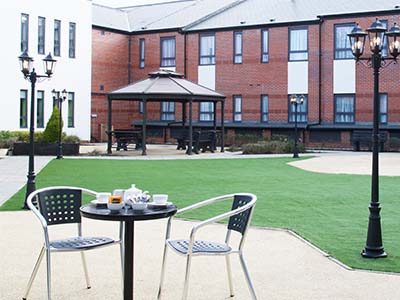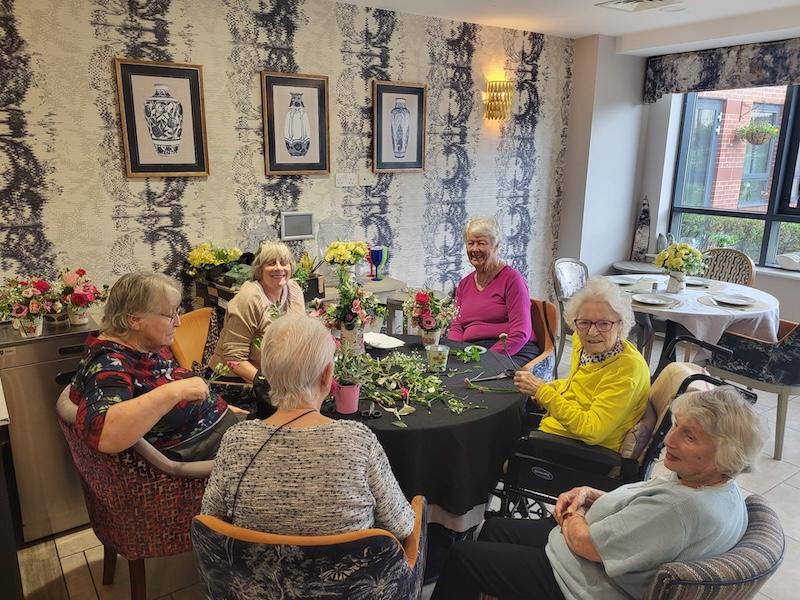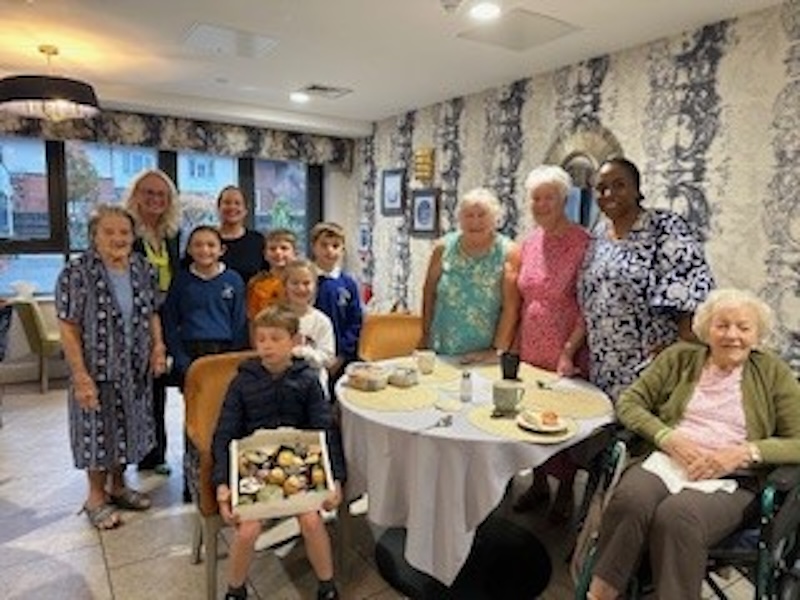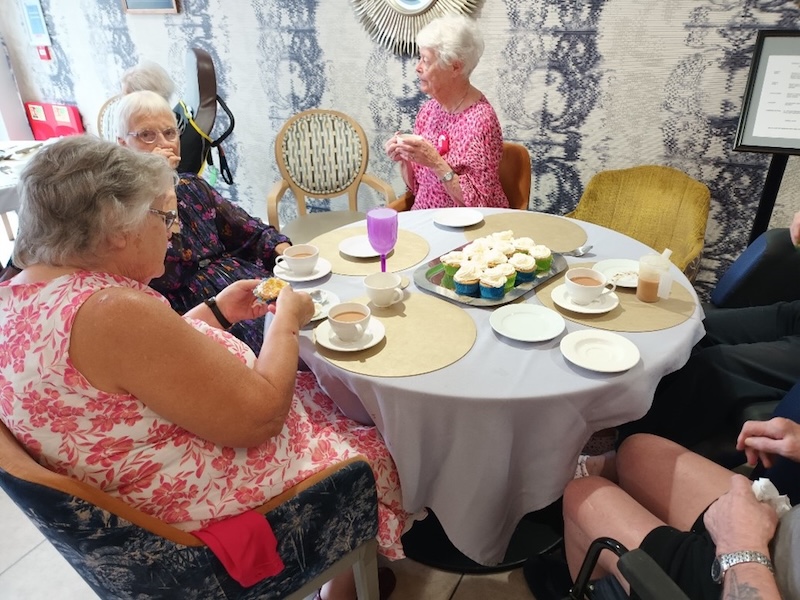Supporting Care Journeys – A Continuum of Care

As we age, our needs change. A young retiree may prioritise an active lifestyle with opportunities for social connection and personal growth. In contrast, an older adult with chronic health conditions might require more assistance with daily tasks and medication management.
The concept of a "continuum of care" acknowledges this reality. It recognises that a truly supportive living environment for older adults must be adaptable. Imagine a care home that can evolve alongside its residents, seamlessly adjusting the level of support provided as their needs change.
This is the essence of the continuum of care approach, and it's a philosophy we embrace here at Amberley Care Home in Sale. Our luxurious environment, dedicated team, skilled and experienced carers and evolving levels of support empower residents to live their fullest lives, even as their needs change over time.

What Does "Continuum of Care" Mean?
A continuum of care approach acknowledges that older adults have a vast spectrum of needs. Some residents may be active and independent, requiring minimal assistance with daily tasks like bathing or dressing. Others may need help managing medications or navigating cognitive decline. Still others may require 24/7 skilled nursing care.
A true continuum of care ensures all these needs can be met within a single, supportive environment, eliminating the need for disruptive transitions to unfamiliar settings and healthcare facilities as circumstances change.
The heart of the continuum of care is tailoring support to the individual and their specific needs. This requires in-depth assessments that go beyond basic physical health. Our team gets to know each resident's life story, their hobbies, their cultural background, and their preferences. This comprehensive understanding allows us to create a personalised care plan that caters not just to physical wellbeing, but also to emotional and social wellbeing.
As a resident's needs evolve, we revisit and revise the care plan collaboratively, ensuring it continues to reflect their current abilities, preferences, and goals. Regular communication with families keeps them informed and involved in care decisions, creating a sense of trust and shared purpose.
Crucially, a continuum of care emphasises smooth transitions between levels of support. This is particularly important for residents experiencing a decline in health or cognitive abilities. Imagine a resident who initially thrives in an independent living setting at Amberley. They enjoy socialising in the communal lounges, participating in fitness classes, and taking advantage of our on-site salon services. Perhaps they require some assistance with medication management, which our dedicated nurses can provide discreetly and efficiently. However, as their health declines, they may need more help with daily living activities.
A continuum of care approach ensures a seamless transition to assisted living within the same familiar environment. Caregivers they already know and trust can help with bathing, dressing, and medication management, while the resident continues to enjoy their favourite activities and social connections. This minimises disruption and anxiety, allowing the resident to adjust to their changing needs with a sense of security and continuity.


Levels of Care: What Your Journey Might Look Like
While every individual's path is unique, here's a simplified example of how a continuum of care approach in a setting like Amberley could support a resident's needs:
Moving for Companionship and Luxury: An active senior, feeling lonely in their large family home, chooses to move into a care home like Amberley. They enjoy the vibrant social scene, delicious meals, housekeeping services, and the peace of mind that comes with having assistance just a call button away, should they need it.
When Temporary Support is Needed: After a minor surgery, the resident requires help with wound care and medication management. A short-term transition to a skilled nursing care wing within the same facility ensures seamless support and care delivery and eliminates the stress of finding outside services.
Specialised Care in a Familiar Place: If the resident later develops early-stage dementia, they may transition from primary care into a dedicated memory care wing. Staff trained in dementia care, secure surroundings, and tailored activities provide a safe and stimulating environment. The resident benefits from remaining in a familiar community, with caregivers they already know.
Compassion and Dignity: If the resident's health declines significantly, Amberley's focus shifts to providing compassionate end-of-life care. This might include pain management, spiritual support, and ensuring family members have ample time to be with their loved ones in a private and comforting setting.

Consistency Builds Trust
In a true continuum of care setting, a resident may move between wings or have new caregivers as their medical needs may change. But the underlying feeling of community remains constant. They see familiar faces, continue participating in beloved activities (modified as needed), and have the chance to maintain cherished friendships. This creates a profound sense of security – they know that even amidst life's changes, they are not alone.
Older adults, especially those with health challenges, are at high risk for loneliness. A strong community within Amberley provides a built-in antidote. A lively card game in the lounge, a shared meal, or simply sitting by the fireplace with a friend can make a world of difference.
Even residents experiencing cognitive decline benefit from the sense of belonging that comes from consistent social interaction, minimising feelings of agitation and confusion.
A continuum of care community means residents at all stages of the care journey can still share experiences. A special dinner, a visiting musician, or a holiday celebration become events everyone in the Amberley family enjoys together. This creates a sense of shared purpose and allows residents to continue making memories even when their individual abilities change.
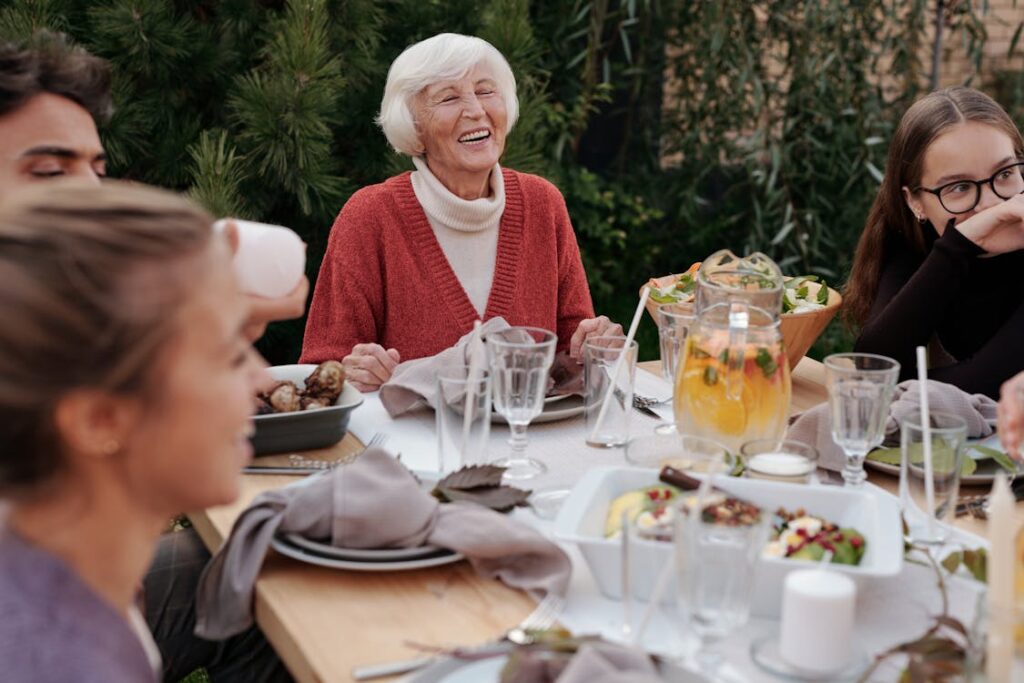
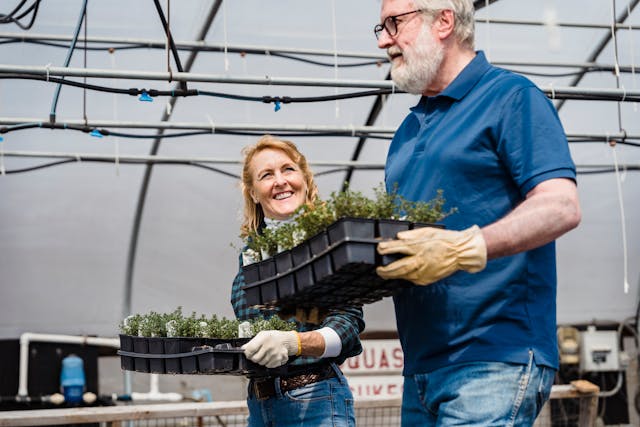
Honoring the Person, Not Just the Condition
Person-centred care means taking the time to learn about residents' preferences. Does a resident prefer to be called by their nickname or a more formal address? Do they have a favourite dessert that brings back happy childhood memories? Is there a particular song that always makes them smile?
These details, woven into their daily interactions, help residents maintain a sense of self, even when they're struggling with changes in physical or cognitive abilities. Caregivers become detectives, seeking ways to honour a resident's past while making their present as joyful and comfortable as possible.
True person-centred care goes beyond physical necessities. Perhaps a former teacher enjoys "helping" with activity preparation, or a lifelong gardener delights in caring for a single potted plant. Identifying these core passions and finding ways for residents to continue engaging in them keeps their spirits alive even amid physical limitations.
When staff take the time to truly know residents as individuals, they unlock the potential for joy and meaningful contribution at every stage of the ageing process.

Family Involvement, Partners in Care
When a loved one moves into a care home, families trust you with their most precious person. Amberley's commitment to open communication builds this trust. Whether it's regular updates on a resident's well-being, clear explanations of medical decisions, or simply taking time to listen to a family's concerns, building these relationships is key to a successful continuum of care approach.
Families feel reassured knowing their loved one is seen and valued, making it easier to collaborate with healthcare professionals when care needs change.
A smooth transition to a new care level benefits everyone – residents, family, and staff. Involving families in these conversations is vital. When they understand the reasons behind a suggested change and feel heard, they're more likely to become champions for their loved one, encouraging a positive adjustment. Open communication also allows families to share insights about a resident's history, preferences, and potential triggers that can ease the transition and personalise the new care environment.

Proactive, Not Reactive Personalised Care
Choosing a care home is more than comparing a list of services. It's about finding a place you trust with your loved one's entire ageing journey. With our continuum of care approach, Amberley Care Home offers peace of mind, knowing you won't have to search for new facilities or uproot your loved one as their needs change. Here's what sets us apart:
In traditional models, each change in care level often means a move to a new facility – new rooms, new faces, unfamiliar routines. These transitions are stressful for both residents and families, especially those with dementia. At Amberley, our ability to adjust support levels within our community minimises disruption. Your loved one can maintain their sense of place and their connection to familiar caregivers, creating a strong foundation for well-being as they navigate life's inevitable changes.
Our assessments aren't just a snapshot in time. We regularly review and update care plans in collaboration with healthcare providers and with residents and their families. This proactive approach lets us spot potential challenges early, allowing for gradual, supported changes rather than reacting to crises. Whether it's noticing subtle signs of cognitive decline, adjusting medication regimens, or suggesting tailored activities to improve mobility, our team works to stay ahead of the curve, ensuring your loved one always receives the ideal level of support for their current needs.
It's hard to make decisions about a loved one's care from afar. Our commitment to family involvement means open communication every step of the way. Whether you need updates on your loved one's well-being, have questions about the best care options for a new diagnosis, or simply need a caring ear to listen to your concerns, we see you as an integral part of the care team. Regular family events at
Amberley create opportunities for in-person connections with care providers, strengthening these bonds and providing reassurance that your loved one is embraced by a whole community, not just a facility.


Discover the Amberley Difference: Visit and See for Yourself
Pictures and online reviews only tell part of the story. We invite you to step into the warmth of Amberley Care Home and experience firsthand the sense of community and dedication that sets us apart. During your tour, ask about:
- Care Transitions: How staff communicate changes in residents' needs with families, and how they help residents adjust.
- Person-Centred Touches: Examples of ways they celebrate residents as individuals (birthday rituals, honouring hobbies, etc.).
- Resident Testimonials: Stories from families about their loved one's journey within the Amberley community.
Peace of Mind Starts with a Conversation
Choosing a care home in Sale is an important decision. Contact us today to schedule a visit and learn more about our continuum of care. Our dedicated team is ready to answer your questions, address your concerns, and help you envision how Amberley could become a supportive home for your loved one, at every stage of their life.
